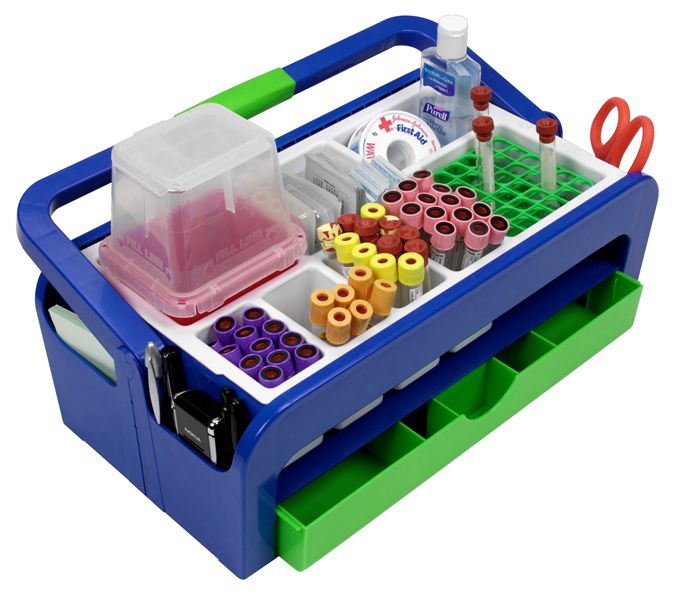Unlocking the Mysteries: 10 Common Phlebotomy Questions Answered
If you’re considering a career in phlebotomy or simply curious about this medical field, you may have several questions about the practice of drawing blood. Phlebotomy, the process of collecting blood samples for testing or donation, plays a crucial role in healthcare. To help demystify this profession, we’ve compiled a list of the most common phlebotomy questions and provided detailed answers to each.
1. What is Phlebotomy?
Phlebotomy is the medical practice of drawing blood from patients for various purposes, such as diagnostic testing, blood transfusions, or blood donation. Phlebotomists are healthcare professionals trained to collect blood samples safely and efficiently.
2. What are the Duties of a Phlebotomist?
Phlebotomists perform several essential duties, including:
– Identifying patients and verifying their identities
– Explaining the blood-drawing process to patients
- Sterilizing equipment and preparing the collection site
– Drawing blood samples using various techniques
– Labeling samples accurately and transporting them for testing
3. Are Phlebotomists Required to Have Certification?
While certification is not always mandatory, many employers prefer to hire certified phlebotomists. Certification demonstrates a phlebotomist’s competence and adherence to industry standards. The most recognized certifications for phlebotomy include those offered by the National Healthcareer Association (NHA) and the American Society for Clinical Pathology (ASCP).
4. What Skills are Essential for a Successful Phlebotomist?
Successful phlebotomists possess a unique set of skills, including:
– Excellent communication and interpersonal skills
– Attention to detail and organizational abilities
– Knowledge of phlebotomy techniques and best practices
– Ability to follow safety protocols and maintain hygiene standards
5. How Can I Prepare for a Career in Phlebotomy?
To pursue a career in phlebotomy, consider taking the following steps:
– Enroll in a phlebotomy training program or course
– Gain hands-on experience through internships or externships
– Obtain phlebotomy certification to enhance your credentials
– Stay updated on industry trends and advancements in phlebotomy practice
6. What Are the Common Challenges Faced by Phlebotomists?
Phlebotomists may encounter several challenges in their daily practice, such as:
– Difficult or anxious patients
– Limited access to suitable veins for blood collection
– Handling sensitive or delicate specimens
- Adhering to strict safety and sanitation protocols
7. How Can Phlebotomists Ensure Patient Comfort During Blood Draws?
To ensure patient comfort during blood draws, phlebotomists can:
- Use a numbing agent or warm compress to reduce pain
– Engage in friendly conversation to distract patients
- Explain the procedure calmly and reassuringly
– Provide post-draw care instructions for patients
8. What Are the Career Advancement Opportunities for Phlebotomists?
Phlebotomists can pursue several career advancement opportunities, such as:
– Specializing in pediatric or geriatric phlebotomy
– Transitioning to roles like medical laboratory technician or technologist
– Becoming a phlebotomy instructor or supervisor
– Continuing education in related fields like nursing or laboratory science
9. How Does Technology Impact the Field of Phlebotomy?
Technology plays a significant role in modern phlebotomy practice, with advancements such as:
– Electronic health records for tracking patient data
– Vein visualization devices to improve blood draw success rates
– Automated blood collection systems for efficiency and accuracy
– Online phlebotomy training programs for remote learning
10. What Are Some Important Safety Precautions for Phlebotomists?
Phlebotomists must adhere to strict safety precautions to protect themselves and their patients, including:
– Wearing appropriate personal protective equipment (PPE)
– Disposing of used needles and sharps in designated bins
– Following hand hygiene guidelines before and after blood draws
– Reporting any incidents of needle sticks or exposure to bloodborne pathogens
phlebotomy is a vital aspect of healthcare that requires specialized skills, training, and knowledge. By addressing these common phlebotomy questions, we hope to shed light on this essential medical practice and encourage aspiring phlebotomists to pursue their career goals with confidence. Remember, continuous learning and dedication are key to success in the field of phlebotomy. Unlock the mysteries of phlebotomy and embark on a fulfilling journey in healthcare today.
